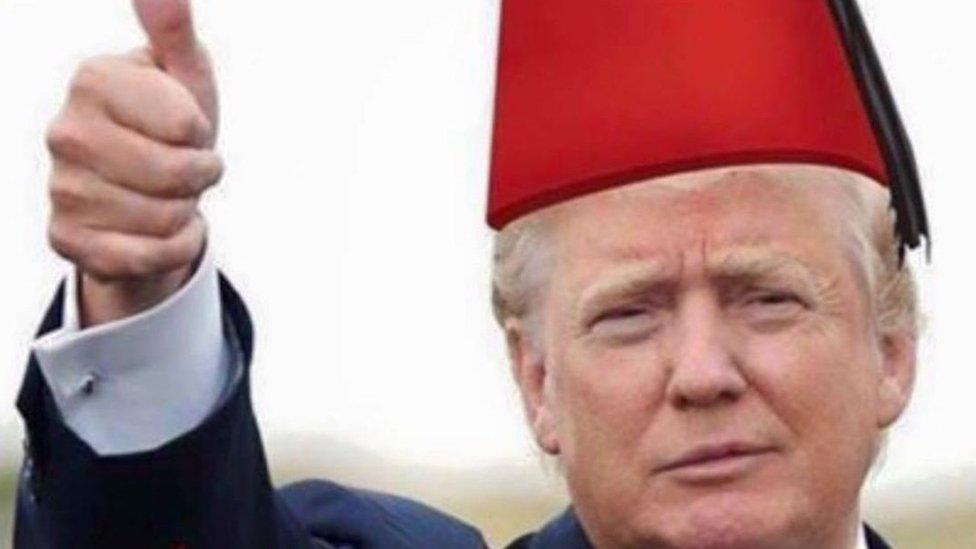Syria war: Why now, what happened, what next?
- Published
The Pentagon has released video of missiles being launched from US Navy ships, targeted at a Syrian airfield.
The US has carried out a missile strike on a Syrian air base in response to a suspected chemical weapons attack on a rebel-held town in Syria, that was carried out earlier this week.
We asked for your questions on the strike and the BBC's defence and diplomatic correspondent Jonathan Marcus has answered some of the most popular ones.

What happened?
Russia was warned ahead of the attack and reports suggest that several Syrian aircraft were indeed destroyed on the ground.
The focus of the US cruise missile attacks was on aircraft, runways and infrastructure. It was not intended to cause massive loss of life among the Syrian military, though at this stage we have no reliable estimate of casualties. The Russians have said none of their personnel at the base were killed.
Cruise missiles are a stand-off weapon launched from warships, submarines or aircraft. In this case, the missiles were launched from two US destroyers.
They are highly accurate, though like all weapons systems they can of course go wrong. They carry a reasonably small warhead, the equivalent of a single bomb.

Was it legal?
The US clearly believes that a sarin-like agent was used in the attack earlier this week, that it was delivered by Syrian aeroplanes and that those military aircraft were based at the location that was hit by the US cruise missiles.
While Syria, backed by its ally Russia, insist that they were not involved, it has a track record of using chemical munitions.
In 2013, Syrian president Bashar al-Assad's regime mounted a chemical attack using the nerve agent sarin on the Ghouta agricultural belt around Damascus. The then UN Secretary General Ban Ki-moon described the attack as a war crime. Following that attack, much of Syria's stockpile of chemical weapons was removed.
But there have been numerous claims of the use of chlorine gas, some of which have been substantiated by the Organisation for the Prohibition of Chemical Weapons - the international body responsible for implementing the ban on such weapons.
Legality is a difficult question. The US is not at war with the Syrian regime - though it disputes its legitimacy. The US contention may be that the Syrian regime has committed a war crime and that the US has a legitimate reason to act to protect Syrian civilians from this kind of atrocity.

Why now?
Many might say that Syrian civilians are being killed every day by conventional weapons and that this does not draw a US response. Certainly, though, in the West chemical weapons produce a particular horror and they are banned by international convention. Syria belatedly agreed to this convention when it was forced to give up its chemical weapons after the 2013 sarin attack.
It is the use of a much more deadly nerve agent (and not the industrial chemical chlorine) that makes this attack cross a red line. But what if chlorine is used again in the future? Will the US act then?
I do not think this is linked to President Trump's domestic approval ratings, which some polls place as low as 35%.
He has decided to act resolutely to enforce a prohibition on the use of chemical weapons, which President Obama failed to do in 2013. In doing so he has marked his distance from his predecessor, demonstrating that there is a new man in the White House.

What about Russia?
Russia has responded swiftly by condemning the attack and has insisted that it was actually being planned before the chemical incident earlier this week. It has also suspended an agreement with the US under which military officers from both sides consulted to avoid incidents in Syrian airspace between their aircraft.
Russia's backing for the Assad regime goes back to the 1960s, when the current president's father led Syria. It is Moscow's only major ally in the region.
There is a small Russian naval facility there which is being modernised, as well as the air base from which Russia mounts its own air operations.
Syria gives Russia a foothold in the region which remains of strategic importance to Moscow.

What next?
The scope and method of the strikes suggests that this was a limited punitive attack, not a move from the US to intervene in Syria's civil war. It strongly bears the hallmarks of President Trump's key military advisers, who are seen as being tough but also realistic about what military force alone can achieve.
It is hard to see what response the Syrians may take. There could be worries that their Iranian allies may pursue some kind of reprisal. Iranian-backed militias operate in Iraq where US forces are engaged in combat against so-called Islamic State.
This is not going to significantly alter the balance of power in Syria, where President Assad is well entrenched in a significant part of the country.
Further US strikes are unlikely unless sarin is used again.
But it will shape the future US-Russia relationship. For Moscow, President Trump has been very much an unknown quantity.
WATCH: What is Trump's plan in Syria?
President Vladimir Putin had hoped that he might find a willing partner in the new US president. In the event, the Trump administration looks in some ways much more like previous US administrations - highly sceptical about Moscow and what it is trying to achieve in the world.
Notwithstanding this, there are many problems where progress can only be made if the US and Russia work together. Syria may be one of them.
US Secretary of State Rex Tillerson is due to meet his Russian counterpart soon. The Russians will now have a better idea of who they are dealing with.

Produced by Chris Bell, UGC and Social News team
- Published7 April 2017
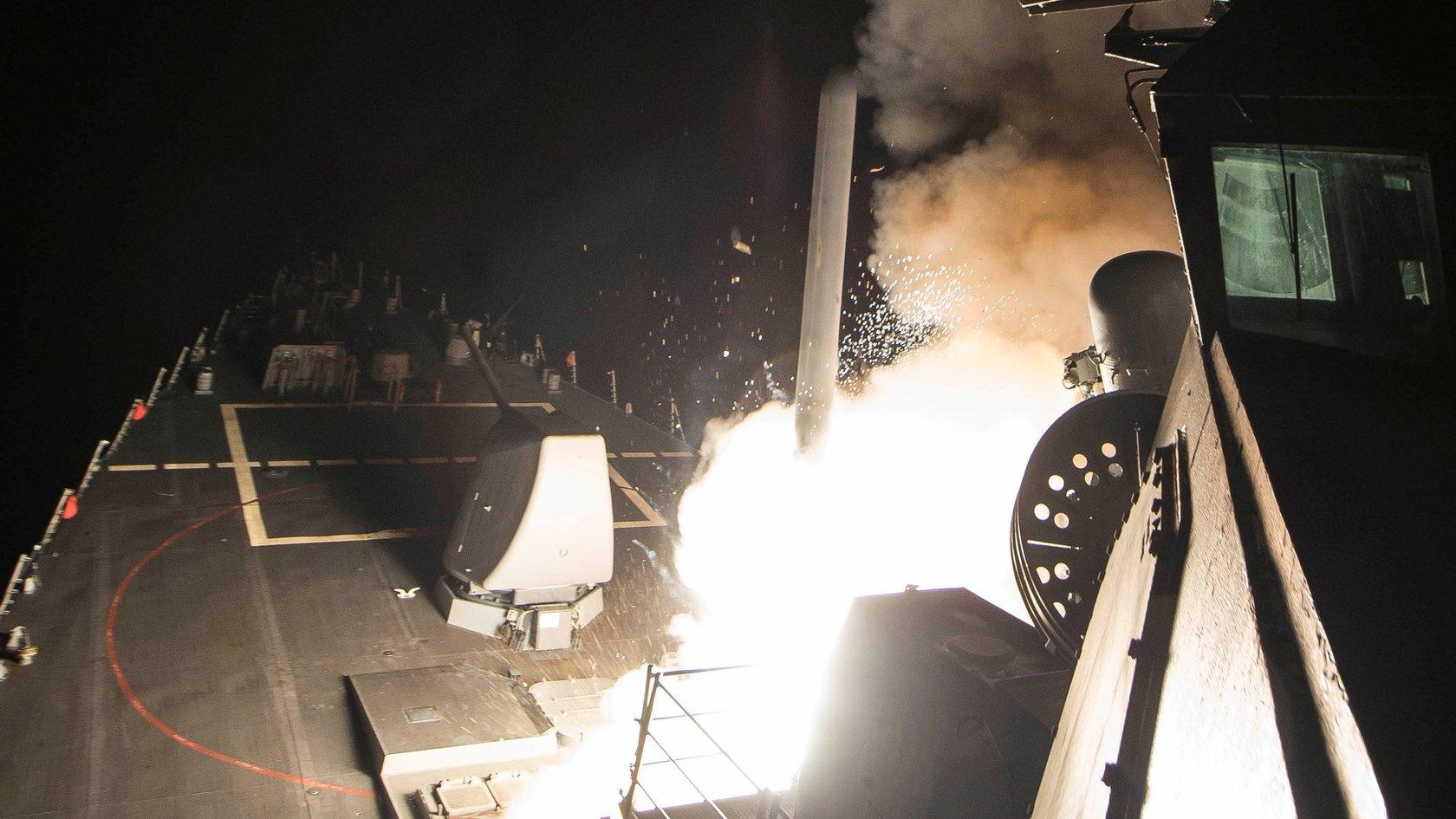
- Published7 April 2017
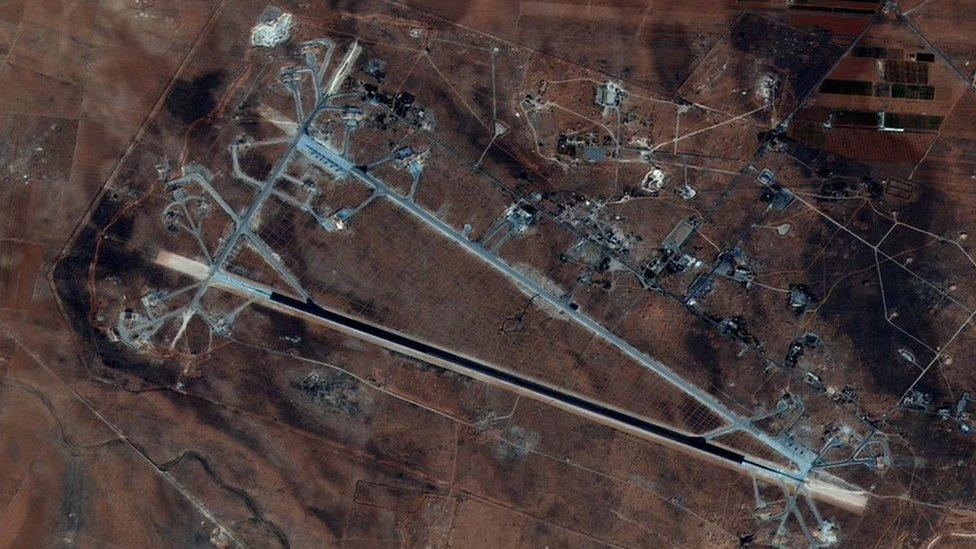
- Published7 April 2017
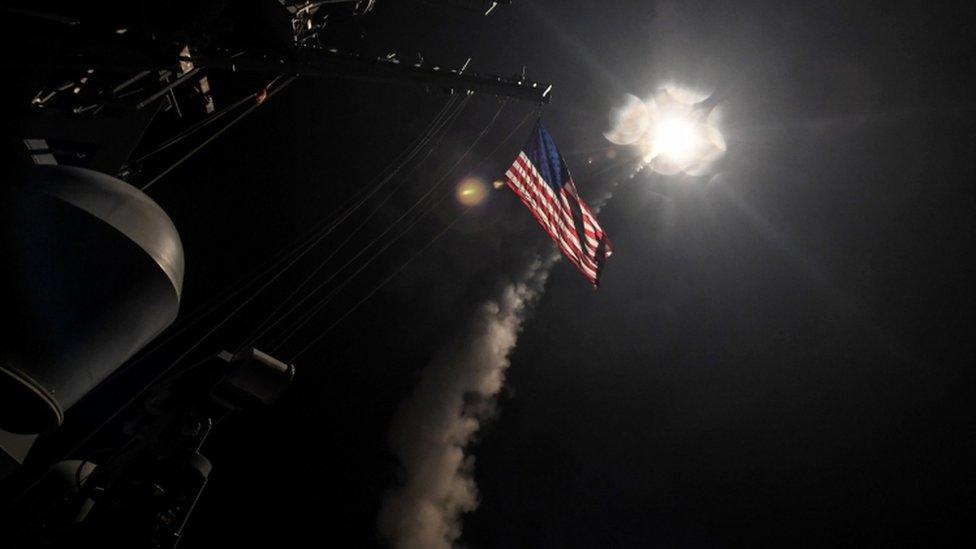
- Published26 April 2017
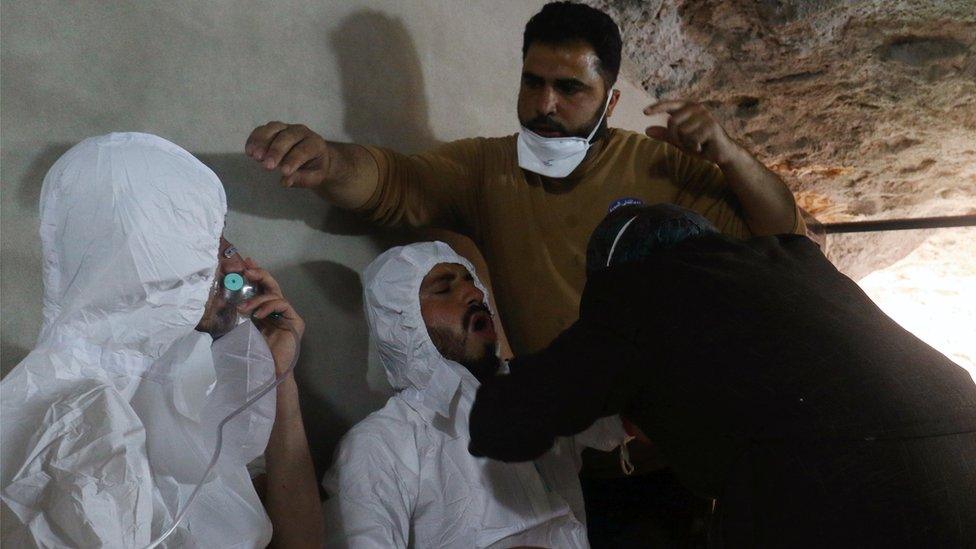
- Published7 April 2017
